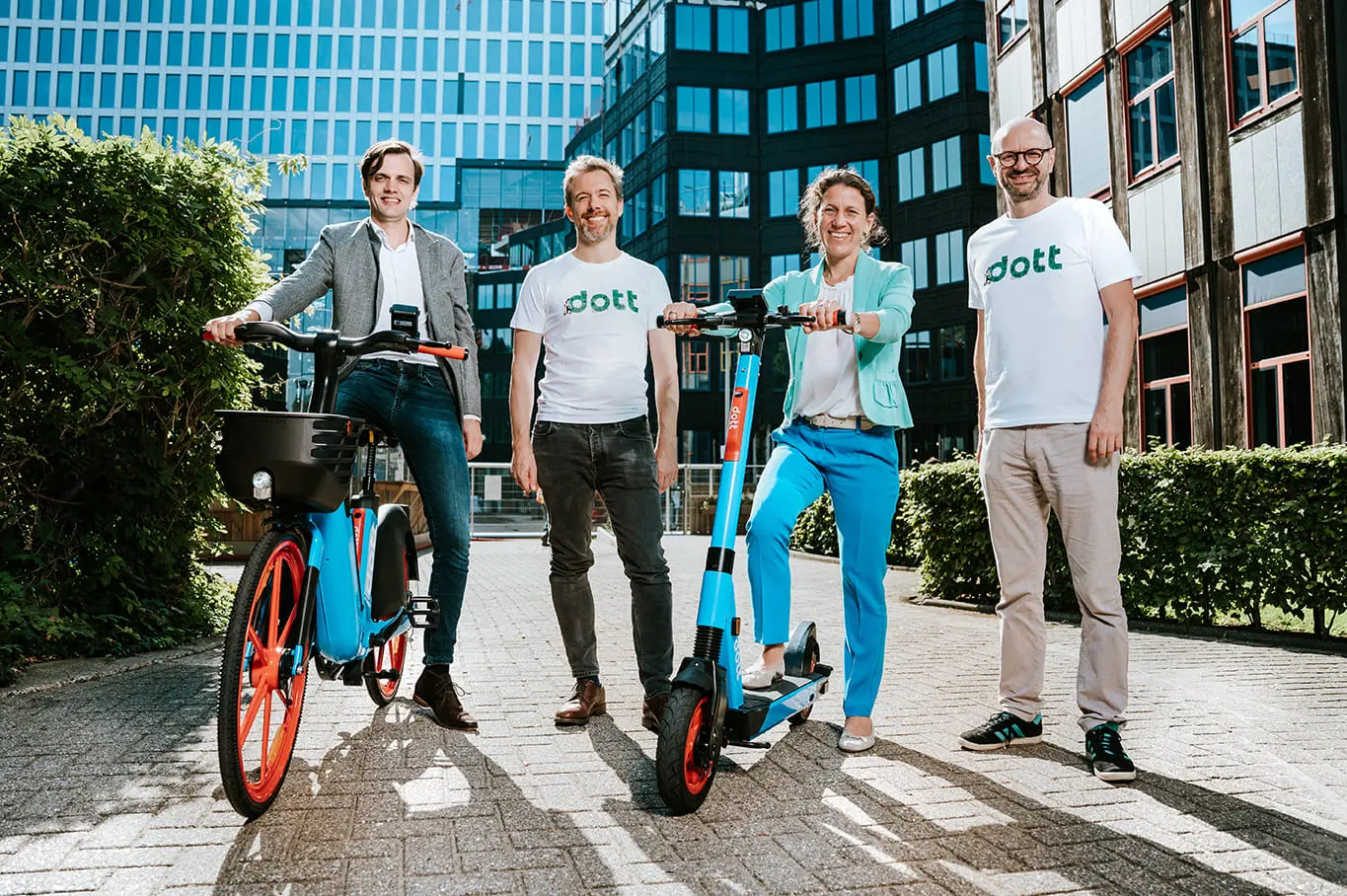Dott: The Dutch Startup Steering Europe Toward a Greener Urban Future
Dott: The Dutch Startup Steering Europe Toward a Greener Urban Future
By
Leah Rosenfeld
Last updated:
July 29, 2025
First Published:
August 6, 2025

As European cities grapple with traffic congestion, pollution, and climate goals, a new kind of transportation solution has quietly taken over bike lanes and sidewalks: shared e-scooters and e-bikes. At the heart of this urban mobility shift is Dott, a micromobility startup headquartered in Amsterdam that has grown to become one of Europe’s leading players in sustainable city transport.
A Humble Launch with a Big Mission
Founded in 2018 by Henri Moissinac and Maxim Romain, Dott was created to offer clean, convenient, and affordable ways to move around crowded city centers. The idea was simple: replace short car trips with lightweight electric vehicles, reducing both emissions and the stress of urban commuting.
Unlike its competitors, Dott took a different route from day one. It prioritized local operations, long-lasting vehicles, and in-house maintenance — decisions that may have slowed growth in the short term but built a reliable, trusted brand in the long run.
Scaling Across Europe
Within just a few years, Dott expanded its footprint to more than 35 cities in over 10 European countries, including major hubs like Paris, Brussels, Milan, and Cologne. Rather than launching in dozens of markets at once, Dott focused on building strong relationships with city governments, tailoring its services to each location’s regulations and infrastructure needs.
This hyper-local strategy paid off. Dott became known not just as a ride provider, but as a partner in reimagining mobility. Its success in cities like Paris — where authorities have been aggressive about pushing cars out of the urban core — helped reinforce its image as a sustainable alternative to traditional transport.
Built for Sustainability
Dott’s commitment to sustainability isn’t just marketing fluff. The company designs its own vehicles, focusing on durability and repairability. Their e-scooters are built to last over five years — far longer than industry averages — and components are frequently reused or recycled.
Charging operations are also run with a low carbon footprint. Dott uses electric vans and renewable energy at its warehouses, cutting emissions at every level of its supply chain. In fact, the company has published annual environmental impact reports, proving its transparency and long-term commitment to climate-friendly mobility.
Funding and Growth
Despite heavy competition from companies like Tier, Voi, and Lime, Dott has remained a key player thanks to strategic funding and measured scaling. By 2023, the company had raised over €200 million in funding from European investors, giving it the resources to expand its e-bike fleet, improve software, and enter new cities with confidence.
In early 2024, Dott and Tier Mobility — another leading European micromobility company — announced a merger, creating one of the largest e-scooter and e-bike networks in the region. This consolidation aims to help both brands operate more efficiently and profitably, amid increasing pressure from city governments and investors to demonstrate financial sustainability.
Challenges Ahead
The micromobility space is not without hurdles. Cities are tightening regulations on scooter parking, speed limits, and fleet sizes. Profitability remains a concern across the industry, especially as vehicle maintenance, insurance, and vandalism costs eat into margins.
Yet, Dott has remained resilient. Its city-first approach, emphasis on safety and sustainability, and willingness to work closely with regulators has helped it avoid many of the pitfalls that tripped up competitors. As other startups fold or exit markets, Dott has stayed committed to refining its model and proving that micromobility can be both impactful and financially viable.
A Glimpse into the Future
With cities increasingly turning away from car-centric infrastructure and looking for eco-friendly alternatives, Dott is well-positioned to be a lasting player in the urban transport revolution. The company is already piloting new services such as long-term rentals, subscription models, and integrated public transit partnerships — all aimed at making urban life more flexible and sustainable.
In an era where convenience often clashes with climate goals, Dott is showing Europe — and the world — that it’s possible to build a transportation business that’s both smart and responsible. If their momentum continues, the name Dott could become as synonymous with city life as the tram, the metro, or even the bicycle.
Popular articles
Subscribe to unlock premium content
Disney’s Timeless Magic and How the Entertainment Giant Continues to Shape Culture and Innovation

Imran Khan’s Economic Missteps Amid Political Chaos in Pakistan

The Philippines’ Digital Shift How Remittances and BPO Are Fueling Growth

Disney’s Timeless Magic and How the Entertainment Giant Continues to Shape Culture and Innovation

Imran Khan’s Economic Missteps Amid Political Chaos in Pakistan

Disney’s Timeless Magic and How the Entertainment Giant Continues to Shape Culture and Innovation









